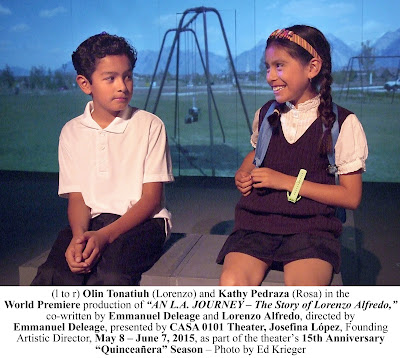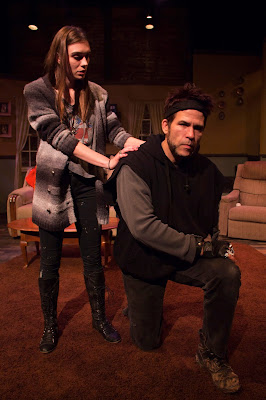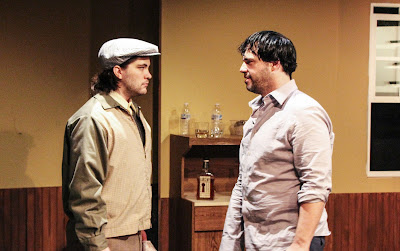Sometimes, you just don’t know, you don’t know how you got here because people, family, are not wiling to talk, to give their accounts of what exactly happened, how they arrived in this country, their perspective.
Maybe concealing is a way of keeping you safe and in this country, your family safe, your friends safe, your loved ones safe.
Maybe concealing is a way of keeping you safe and in this country, your family safe, your friends safe, your loved ones safe.
They both came in the early 1900’s, and lived in the San Joaquin valley, working the fields, and had a son, Jose. His mother got sick, possibly of tuberculosis, died within a matter of months, at the ripe old age of 18, in 1919. His father chose to move on to greener pastures. Jose, the infant, was given away, to a relative, or a friend, someone whispered, and that friend Americanized his name to Joe.
It’s like a whisper, the game you played when you were a kid, from ear to ear, bits and pieces of information that gets lost in the telling. And so it goes. And so it goes. – Narrator
Casa 0101 presents An L.A. Journey The Story of Lorenzo Alfredo written by Emmanuel Deleage & Lorenzo Alfredo and directed by Emmanuel Deleage through June 7th, 2015.
If one were going to make to movie of this play, it would have to be in Cinemascope because of the large cast and landscape. And Jesus Eduardo Magaña, Paulina Bouyer-Magana, and JJ Paredes, the Projection Designers, certainly gives us the scope of the landscape by the projections on the walls. The projections authentically give us the look of these locations. The characters in the play performed in front of the projections, which were very appealing and fun to watch.
An L.A. Journey is the story of an eight-year-old boy Lorenzo (Olin Tonatiuh) who lost his mother and father. His grandmother took care of him, and when she could not do it anymore, Lorenzo was on his own.
Lorenzo—a K’iche Indian, Mayan—went to the city to find a place to work and live.
Hungry, Lorenzo runs into Olivia (Blanca Melchor), a rather crusty, unhappily married woman, who recognizes the usefulness of a small boy to help her with selling of tortillas. She invites him home to sleep on the couch. Olivia tells him that it is only temporary until her husband, Jorge (Felix I. Hernandez), comes back home from wherever and whomever he is sleeping or drinking with.
Lorenzo, happy to have a roof over his head, gets up early and hits the streets to sell tortillas.
When Jorge arrives and finds Lorenzo, he doesn’t want him there; still he sees the value of Lorenzo helping around the house and lets him stay.
Things are suddenly unhappy at home. Jorge is drinking and abusing Olivia. They really don’t get along. One night, Olivia tells Lorenzo that she is leaving Jorge for a boyfriend who is now living in New York and she will take him with her if he wants to go.
Well, Lorenzo doesn’t like Jorge and keeps Olivia’s secret until it is the time for them to go. Lorenzo says goodbye to his little friend, Rosita (Kathy Pedraza). And, in the dead of night, Lorenzo and Olivia start their journey to El Norte.
Olivia tells Lorenzo, they are traveling, as mother and son and she wants him to call her “mom” until they get into the United States. Unfortunately, Olivia doesn’t have that much money, and she is also not that smart when it comes to dealing with other people along the path to El Norte.
At first glance, An L.A. Journey The Story of Lorenzo Alfredo by Emmanuel Deleage and Lorenzo Alfredo seems like a wonderful story. One is very hard pressed to pass up a story about a boy 8 years old trying to get to Los Angeles.
A couple of things: one, the title should say “The True Story of Lorenzo Alfredo” because everyone likes a true story.
Secondly, it should be Lorenzo's story and not the story of others around him. During the course of the play, we lose sight of the cause, the boy, and the travel. While the focus of the writing might change when introducing new characters, the characters should be introduced from Lorenzo’s perspective because it is his story. This is not a story about Olivia; rather it is the story of how Olivia is perceived through the eyes of a young boy. The same holds true of the other characters that enter Lorenzo’s life.
Secondly, it should be Lorenzo's story and not the story of others around him. During the course of the play, we lose sight of the cause, the boy, and the travel. While the focus of the writing might change when introducing new characters, the characters should be introduced from Lorenzo’s perspective because it is his story. This is not a story about Olivia; rather it is the story of how Olivia is perceived through the eyes of a young boy. The same holds true of the other characters that enter Lorenzo’s life.
This is a difficult task for a young actor to carry.
But the writing has some problems because of what Radio DJ (Angel Lizarraga) reveals as he tells the story to Caller (Erick Chajon).
In any case, if it is from the perspective of Radio DJ, then the story, as told on stage, should have been more precise, the journey fraught with more peril, and the passage more linear so that the characters are not traveling around in circles. No one likes to see an excursion in circles unless it is done to comic effect.
Carmelo Alvarezdoes an exceptional job with the character Hector and moves over into the dark side with the Money Exchanger.
Yolanda Gonzalesalso contributes mightily with portrayals of Dona Mare, and Grandmother. Her work was very enjoyable.
Felix I. Hernandezis outstanding as Jorge. He has a strong voice and a strong stage presence and I hope to see him in other plays.
Aurelio Medinadoes some really nice work as Spicy, the coyote, that brings Lorenzo to the United States. Medina fits right into the role and has a very nice look on stage. One particularly likes the idea that Spicy will go to great lengths to provide for those who need his help, including using a helicopter. (If only the boy had expressed joy in that scene.)
Blanca Melchor as Olivia plays angry most of her time on stage. This is not an interesting choice when there are so many other actions that would help the character. Angry doesn’t get a character anywhere but having a strong objective will take an actor on an incredible journey.
Olin Tonatiuh is Lorenzo and has a very tough role in that he is on the stage most of the time. Olin has a very good look and also has much to learn on his thespian journey.
There was some nice singing from Lorenzo Alfredo, the writer/actor, in this play.
Kathy Pedraza is very lovely as lovely Rosita.
The other actors filling out the roles are Erick Chajon, Angel Lizarraga, Estuardo Muñoz, Noemi Pedraza, Sharon Robles, Yocani Tonatiuh, and Katie Ventura.
Casa 0101 has a beautiful and spacious theatre. The idea of having original works of Latino themed plays is a good one. This is segment of Los Angeles actors that are ignored in Hollywood. But now, at CASA 0101, they are showcased, up on their feet creating art, and by all means that is a good thing.
I, for one, would like to see Roger’s and Hammerstein’s “Oklahoma” done with an all Latino cast, complete with great Latino voices, great Latino actors and musicians.
But, that dream aside, the script needs more work. This is tough to do when the director and one of the writers, Emmanuel Deleage, are one in the same. In this case the writers, director and the producer should contribute to the making of a play. Also, the actors need to work harder to find their place and their light in their craft.
Other members of the crew are as follows:
Edward Padilla– Producer
Rafael O. Calderon– Producer
Josefina López– Founding Artistic Director of CASA 0101
Abel Alvarado– Costume Designer –Very nice work.
César Retana-Holguín– Set Designer
Cristina “Crispy” Carillo-Dono– Assistant Stage Manager
Ed Krieger– Publicity Photographer
Jorge Villanueva– Light Board Operator
Jules Bronola– Assistant Stage Manager
Juanita Gina Medina– Stage Manager
Mark Kraus– Webmaster
Matthew Sanchez– Props Master
Maura McGuinness– Lighting Designer
Ramon “Rooster” Cabrera– Assistant Stage Manager
Sohail e. Najafi– Technical Director
Miguel Carachure– Assistant Stage Manager
Steve Moyer Public Relations
Vincent Sanchez - Sound Designer
Run! And take someone who likes to whisper in your ear, over and over again, “I crossed. He cruzado la frontera.”
Box office: 323-263-7684




















































